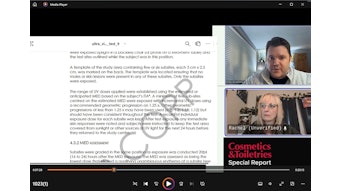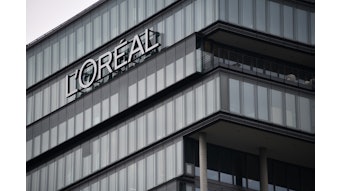
Continuing from the last Asia-Pacific Regulatory Update, this edition includes changes made from November to December 2024. Key developments included restrictions on triethanolamine (TEA) in mainland China, Hong Kong SAR's Mercury Control Ordinance and updates to ingredient lists under the ASEAN Cosmetic Directive. Additionally, Thailand and Indonesia implemented revisions to their notification requirements. Following is a brief overview.
Chinese Mainland: Adjusted Triethanolamine (TEA) Restrictions
On Dec. 17, 2024, China’s Ministry of Industry and Information Technology (MIIT), the Ministry of Commerce (MOFCOM) and the General Administration of Customs (GACC) jointly issued a notice optimizing the regulation of products containing low-concentration triethanolamine (TEA; CAS No. 102-71-6), including cosmetics. The new policy took effect on Jan. 1, 2025.1
Key updates include:
Exemption from import and export licensing: Certain products containing low concentrations of TEA are no longer required to obtain the Approval Certificate for the Import and Export of Controlled Chemicals or the Import License for Dual-use Items and Technologies.
These include:
- Non-medical disinfectants, synthetic detergents, cosmetics, inks, etc.
- Relevant products with a TEA concentration of 10% or lower, except for single aqueous solutions of TEA.
- Customs declaration requirements: For Category 2 products, importers and exporters must accurately declare the free TEA concentration in the specification and model section of the customs declaration form when declaring the import or export.
Hong Kong SAR, China: Mercury Control
Effective Dec. 1, 2021, Hong Kong's Mercury Control Ordinance2 implements the Minamata Convention on Mercury, regulating the import, export, storage and use of mercury, its compounds and mercury-added products.
The ordinance prohibits the import, export and manufacture of specific mercury-added products, with a complete supply ban starting Dec. 1, 2024. Regulated products include cosmetics, batteries, switches, compact fluorescent lamps and biocides containing mercury above legal limits.
Notably, cosmetics with more than 1 ppm of mercury, such as skin-lightening soaps and creams, are banned. An exception exists for eye cosmetics containing mercury as a preservative, provided they meet specific conditions (not exceeding 70 ppm and no safe alternatives available). Violators face penalties of up to HK $50,000 and a maximum of one year in prison.
ASEAN: Ingredient Updates – 26 Bans, 2 Restrictions, 2 UV Filters
In late November 2024, ASEAN held the 40th ASEAN Cosmetic Scientific Body (ACSB) meeting, introducing significant amendments to the ingredient annexes of the ASEAN Cosmetic Directive (ACD).
- Annex II list of prohibited ingredients: 26 new ingredients were added10 to the prohibited list. The names of two existing prohibited substances, theophylline and barium salts, were modified.
- Annex III list of restricted ingredients: Usage requirements for the restricted ingredient pyrithione zinc were revised. Butylated hydroxytoluene (BHT) was added as a new restricted ingredient.
- Annex VII list of permitted UV filters: Updates were made to the use requirements for oxybenzone (benzophenone-3) and homosalate (INN).
Thailand: Notification Standards Updates – Ampoules and Hand Hygiene
From November to December 2024, the Thai FDA implemented significant updates to the notification standards for two categories of cosmetics: ampoule/vial/syringe cosmetics and alcohol-based hand hygiene products. These updates aim to improve regulatory clarity and ensure compliance with evolving safety and quality standards.
Ampoules, vial and syringe forms: On Nov. 1, 2024, the Thai FDA published the Guidelines for Consideration of Notification of Cosmetics in Ampoule, Vial or Syringe Forms (Revised Edition, September 2024).3
The updated guidelines outline new provisions for cosmetics allowed to be notified in ampoule, vial or syringe form, detailing the physical characteristics of these containers and introducing minor adjustments to the notification dossier requirements.
The revised guidelines aim to enhance regulatory clarity and ensure that these cosmetic products remain distinct from medical devices or drugs.
Alcohol hand hygiene products: On Dec. 26, 2024, the Thai FDA released the Guidelines for Consideration of Notification of Alcohol Products for Hand Hygiene (Revised Edition, November 2024).4
This update revises the Criteria and Requirements for the Notification of Cosmetics Containing Alcohol for Hand Hygiene in the Cosmetic Notification Review Standards (2021 Edition). The updated guidelines offer more detailed requirements for formulation, naming, labeling and notification documentation.
These revisions ensure that alcohol-based hand hygiene products adhere to the latest regulatory standards while maintaining clarity in the notification process.
Thailand: Titanium Dioxide Restrictions
On Nov. 18, 2024, the Thai Food and Drug Administration (Thai FDA) revised the use requirements of titanium dioxide as a restricted ingredient, a permitted colorant and a permitted sunscreen.11 The revisions aim to align Thailand’s cosmetic regulations with the ASEAN Cosmetics Directive (ACD) and to incorporate changes from the past ACSB meetings.5
These amendments took effect on Nov. 19, 2024, and the Thai FDA introduced a 180-day grace period (ending on May 18, 2025) for products containing the affected titanium dioxide ingredients that were already manufactured, imported or sold prior to the announcement.
Thailand: Prohibited Advertising Terms
On Nov. 22, 2024, the Thai Minister of Public Health (MOPH) issued a new ministerial regulation to expand the list of banned advertising terms under the Cosmetic Act B.E. 2558 (2015).6 The new regulation includes two additional categories of prohibited claims:
- Internal use: Advertising statements that suggest a cosmetic product is intended for internal use, excluding advertisements for tampons and oral or dental products.
- Injectables: Advertising statements implying that a cosmetic product is intended for injection or use with devices that penetrate the body or push substances deeper than the epidermis.
This update strengthens efforts to prevent misleading or deceptive advertising, ensuring that cosmetic claims remain truthful and aligned with product functionality.
Indonesia: Proposed Amendments to Cosmetic Notification Requirements
On Dec. 9, 2024, Indonesia's Food and Drug Supervisory Agency (BPOM) launched a public consultation on proposed amendments to the Regulation concerning the Procedure for Submission of Cosmetics Notification.7
Key proposed changes include:
- Expanded product scope: A new category — licensed cosmetics made by Indonesian companies under a license — is added to the product categories subject to notification.
- Revised document requirements: The documentary requirements for notification applicants of imported cosmetics are modified, with a focus on Good Manufacturing Practice (GMP) and trademark certificates for importers.
Data update requirements: Importers or businesses engaged in production contracts must obtain a recommendation as notification applicants by submitting a facilities inspection application to the head of the local UPT BPOM. This is a one-time requirement; however, updates are mandatory if there are changes to key information.
Notably, the addition of warehouse addresses has been introduced as a specific situation requiring updates to the recommendation.
- Notification validity period: The draft regulation introduces a provision stipulating that for imported cosmetics, contract cosmetics or licensed cosmetics with an agency-appointment letter, production contract or license agreement shorter than three years, the notification's validity will match the duration of these documents.
Indonesia: Halal Certification Services
On Dec. 31, 2024, Indonesia's Halal Product Assurance Agency (BPJPH) implemented Regulation No. 80 of 2024, which establishes standard operating procedures for halal certification services for Micro and Small Enterprises (MSEs).8 This regulation replaces Regulation No. 61 of 20229 and aims to streamline and standardize the halal certification process for MSEs.
The regulation introduces four application methods through the online SiHalal system, distinguishing them by the funding sources for certification fees. It outlines a clear and structured process, including application submission, document review, product testing and certification, while also defining the roles and responsibilities of BPJPH, enterprises and the Ministry of Finance.
Conclusion
Recent regulatory updates in the Asia-Pacific region highlight a stronger emphasis on ingredient use, advertising standards, notification requirements and halal certification. The tightening of cosmetic safety and quality standards reflects an increasing focus on consumer protection and regulatory alignment.
To navigate these evolving requirements, companies must proactively enhance their compliance strategies, stay informed about regulatory changes, and invest in robust safety and quality assurance practices. These efforts are crucial for ensuring market access, maintaining consumer trust and upholding product safety in an increasingly competitive and regulated landscape.
References
1. China’s Ministry of Industry and Information Technology (MIIT). (2024, Dec 17). Notice of Three Departments on Optimizing the Import and Export Supervision Measures of Low-concentration Triethanolamine Mixtures (2024 Edition). MIIT. Available at: https://www.miit.gov.cn/zwgk/zcwj/wjfb/tz/art/2024/art_ce95e20056b543d68ce8b309cd13979e.html
2. ChemLinked. (2022, Jul 1). Mercury Control Ordinance (Cap. 640). ChemLinked. Available at: https://cosmetic.chemlinked.com/database/view/1897
3. Thai Food and Drug Administration (Thai FDA). (2024, Nov 1). Guidelines for Consideration of Notification of Cosmetics in Ampoule, Vial,or Syringe Forms (Revised Edition, September 2024). Thai FDA. Available at: https://tinyurl.com/yhh5yuu2
4. Thai FDA. (2024, Dec 6). Guidelines for Consideration of Notification of Alcohol Products for Hand Hygiene (Revised Edition, November 2024). Thai FDA. Available at: https://tinyurl.com/2frzr7ce
5. Thai FDA. (2024, Nov 18). Explanation of the Ministry of Public Health's announcement and the Cosmetics Committee's announcement published in the Government Gazette in November 2024, totaling 5 issues. Thai FDA. Available at: https://tinyurl.com/4uns93y6
6. Thai Minister of Public Health (MOPH). (2024, Nov 22). Ministerial regulations on cosmetic advertisement messages that are unfair to consumers or may cause harm to society at large. MOPH. Available at: https://cosmetic.chemlinked.com/database/view/1905
7. Indonesian Food and Drug Supervisory Agency (BPOM). (2024, Dec 9). Draft regulation concerning the procedure for submission of cosmetics notification. BPOM. Available at: https://tinyurl.com/yfafvj4b
8. Indonesia's Halal Product Guarantee Agency (BPJPH). (2024, Dec 31). BPJPH Regulation No. 80 of 2024. BPJPH. Available at: https://tinyurl.com/ckjz8w74
9. BPJPH. (2022, Mar 9). Regulation No. 61 of 2022. BPJPH. Available at: https://tinyurl.com/2kzbx472
10. Wei, H. (2024, Dec 24). Updates to ASEAN Cosmetic Directive (ACD)’s ingredient annexes: 27 additions and 5 revisions. ChemLinked. Available at https://cosmetic.chemlinked.com/news/cosmetic-news/updates-to-asean-cosmetic-directive-acds-ingredient-annexes-27-additions-and-5-revisions
11. Xu, W. (2024, Nov 28). Thailand updates titanium dioxide regulations for cosmetics. ChemLinked. Available at https://cosmetic.chemlinked.com/news/cosmetic-news/thailand-updates-titanium-dioxide-regulations-for-cosmetics











